Will the Movie ‘Black Panther’ Ignite a Revolution?
The comic book movie has the potential to change the face of American politics.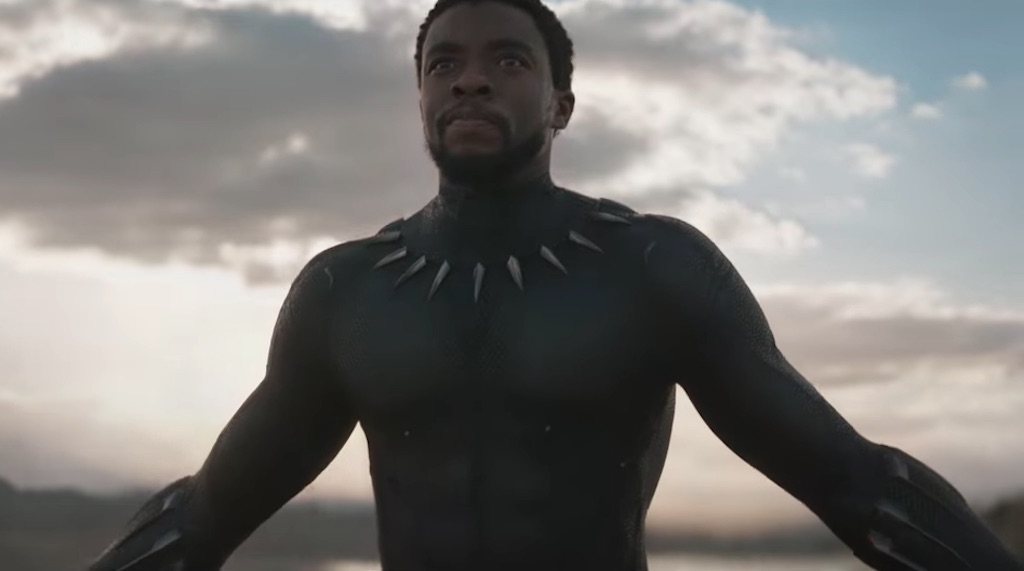 A scene from "Black Panther." (Marvel Entertainment / YouTube)
A scene from "Black Panther." (Marvel Entertainment / YouTube)
Most revolutions ignite due to some “small” inciting incident. The Russian Revolution kicked off due to a late delivery of rye bread, which caused long angry bread lines. The French Revolution was kicked off by the representatives of the “commoners” being locked out of the government meeting. So they met on the tennis courts, thus creating a new “Tennis Court” constitution. After that, heads began to roll.
The Romanian revolution against communist dictator Nicolae Ceausescu started from police blocking a simple church service. Worldwide, most revolutions are ignited by something “small,” i.e., a meeting in a pub, a picture of a protester holding a flower, a lone act of oppression against an innocent that galvanizes popular anger and discontent. Revolutions ignite from less than zero.
On Feb. 16, a “comic book movie” has the potential to start a revolution. Why? Because this is a “black-conscious” comic book movie. Because popular culture as an art form can be an expression of resistance and protest. Because during this time of intense repression against people of color in the USA, a fictional story that highlights people of color (specifically, peoples of Africa and the diaspora) is a spark that can lead to a blazing inferno.
The demographics of Amerikkka are changing—very fast. Very soon, “white people” (aka those who are descended from predominantly European nations) will be the numeric minority in the USA, as they already are around most of the globe. “Whites” are falling in numbers in the USA, below those descendants of other continents (Latin America, Africa and Asia). Donald Trump’s “White Again, Great Again” America is Custer’s Last Stand—and they know it. They smell it, which is why they are afraid and striking back with overt state-sanctioned violence and repression.
Why would a mere comic book movie have the potential to ignite a revolution? Because it has a cast of predominantly black actors, is highlighting a black story, and presenting Africa and Africans in a positive light. This is unheard of in Amerikkka. As the “Black Panther” movie trailer states, “The World is Changing.”
When the movie trailer first appeared, it hit a record of 89 million views in 24 hours. This is unheard of; this is “revolutionary.” The opening-day ticket sales have exceeded that of any other Marvel release. The movie is directed by a young black-conscious director whose parents were social workers and whose breakout film (“Fruitvale Station”) was a biopic of Oscar Grant, one of the many innocent black victims of senseless police violence.
“Black Panther”‘s soundtrack includes Kendrick Lamar, a Grammy Award-winning “conscious” hip-hop musician extremely popular with the younger generation. Any one of these factors would be potentially “igniting.” Together (in these repressive times), they are straight-out explosive.
Why would a mere comic book movie have the potential to ignite a revolution? Because the current commander in chief is both loved (by his supporters) and hated due to his crystal-clear policies and attitudes targeting people of color. He is the avowed enemy of black folks, immigrants, or anyone who is not European or “white” enough. All fall within his target range to bully, shame, accuse and blame. To the incredulous onlooking world, he demonstrates that he is true to one campaign promise: He wants to make Amerikkka “great” (aka “white”) again.
On Feb. 16, a comic book movie has the potential to change all that. This comic book movie will be highlighting a different kind of world, a very different kingdom—“Wakanda.” In Wakanda, (unlike Charlottesville), innocent, peaceful anti-racist protesters are not murdered with impunity (and presidential approval) by racist fanatics. If they are, they do not go unpunished.
In Wakanda, innocent protesters who are peaceful women of color do not have their movements (Black Lives Matter) labeled B.I.E. (“Black Identity Extremists”) and “terrorists” by the FBI, CIA, right-wing news media, or the commander in chief. Wakanda is not that kind of party, not that kind of kingdom. Wakanda is about justice. Something long missing from the dialogue in Trump’s “king-dumb.”
In Wakanda, little children of color have heroes that reflect them, their values, their hopes, their dreams, their manhood and womanhood—as well as their skin tone. In Wakanda, not only do black lives matter, black heroes matter. In Wakanda, justice prevails, not an endless, horrifying trail of “not gulities.” This movie will open up a tear in the veil behind the Wizard of Oz’s not-so-magical curtain of facades, deception, and racist brainwashing. This will open up a whole new world. A cinematic word of “living color”—like the one we really live in.
This is the exact reason my small publishing company is working on projects that create positive stories, black superheroes, children’s book with diversity, etc. We are encouraging writers and artists who reflect the real world existing here in 2018—a world of panoramic, beautiful, rich, colorful diversity. The world (and America) is ready for some new stories. Move over Captain America and Superman. Make some room for today’s superhero—Black Panther is here to stay. The “Black Panthers” of history were systematically destroyed by U.S. authorities. Comic book superheroes are a little harder to kill than Fred Hampton.
What if conscious fathers and mothers of every ethnicity took the opening day of “Black Panther” off? What if they took their kids to go see what a new diverse world could look like? What if Twitter blew up with a new hashtag (#ODBlackPanther) encouraging people of color and their allies to take opening day of “Black Panther” off? What if the new diverse America bought every open seat in theaters playing “Black Panther” to send a resounding message to Weinstein’s decrepit Hollywood: “Reflect us all!”
What if #ODBlackPanther set off a peaceful revolution in the hearts and minds of the children growing up in the Gulag of Trump’s Amerikkka? What if Feb. 16, opening day of “Black Panther,” became like a new July 4, a modern celebration day of liberty? What if we celebrated the unique virtues of every culture, including those of peoples of African descent? What if we replaced the tragedy of Charlottesville with the glory of Wakanda?
The “world is changing,” as the “Black Panther” movie trailer states. Sometimes, something as “trite” and innocuous as a comic book movie can spark a revolution. The lineup for Marvel’s movie has more combustion in it than long rye bread lines and tennis court meetings. It has a far more powerful force driving it—the imaginative genius of the African diaspora.
The “powers that be” murdered Dr. King, Malcom X, and key leaders of the original Black Panthers. But there is something kind of special about the characters from comic books—they fester in the fruitful imaginations of children. That is the garden where triumphant and lasting revolutions are born.
Independent journalism is under threat and overshadowed by heavily funded mainstream media.
You can help level the playing field. Become a member.
Your tax-deductible contribution keeps us digging beneath the headlines to give you thought-provoking, investigative reporting and analysis that unearths what's really happening- without compromise.
Give today to support our courageous, independent journalists.
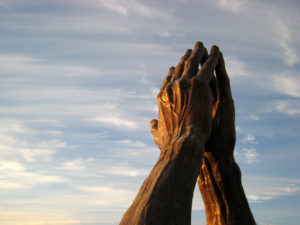
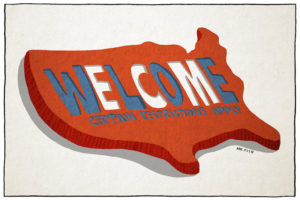
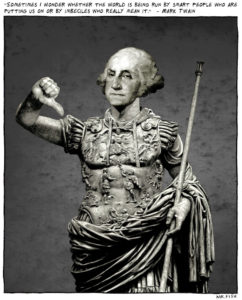

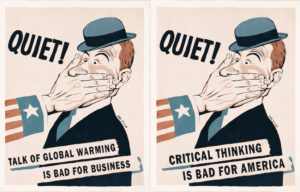
You need to be a supporter to comment.
There are currently no responses to this article.
Be the first to respond.